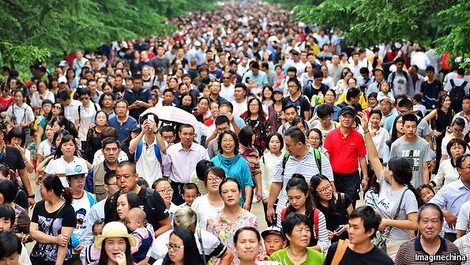Your podcast discovery platform
Curious minds select the most fascinating podcasts from around the world. Discover hand-piqd audio recommendations on your favorite topics.

piqer for: Globalization and politics Global finds
I am an Australian freelance journalist focussing on conflicts, politics, and warzones around the world. I have been working as a journalist for over 5 years, having reported from Australia, Germany, China, Egypt, Palestine, and Ukraine. I am especially interested in the way that new technologies are being used in conflict zones in unexpected and often disturbing ways. During my time working as a journalist, I also co-founded open-source war reporting site Conflict News.
The Upper Han
With the election of Trump in the US and the growing prominence of protectionist and nationalist movements in Europe, China wants to paint itself as the pallbearer of globalization. Preaching for greater international cooperation on trade and environmental issues, China wants the world to believe that it is open for business.
But is China really an open country?
China, as a nation state, is based around the Han — the largest singular ethnic group in the world. Numbering at 1.2 billion, a Han person is synonymous with China, both in the eyes of foreigners, and also China's government. This link between the Han and China is so strong that the government views overseas people of Han descent as fundamentally Chinese, and deserving of differing legal and cultural treatment.
But China's link to Han nationalism has a darker side too. Minority ethnic groups, who make up more than 100 million of China's citizens, are forced into demeaning stereotypes at best or met with government-sanctioned hostility at worse.
As well, while other great powers in the modern world have opened themselves up to immigration, China is the ultimate closed country, with just 1448 naturalized citizens — a tiny drop in the ocean compared to its massive population. This inability for immigrants to settle permanently in China could make the country less of an attractive destination for expatriates and the skill base they bring, something that is critical at a time when the China's upper class is increasingly looking to base themselves outside of the country.
This article in the Economist raises some interesting counterpoints to China's new face as a leader of globalization. Indeed the country's focus on just a single ethnic group begs the question of how committed it really is to a world of 'win-win' cooperation, rather than one where the Han are the only winners.
Stay up to date – with a newsletter from your channel on Globalization and politics.
